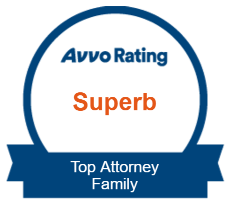Part I: Family Court
New York State is a little unique because there are 2 different types of courts that deal with family issues: Family court and the New York Supreme Court. Though it seems a bit of the opposite, in New York State, a “Supreme Court” court is actually a lower court and not a higher appellate court.  The highest appellate court in New York State is called, the Court of Appeals.
The highest appellate court in New York State is called, the Court of Appeals.
The Family Court is a court of limited jurisdiction that was originally created to allow people to represent themselves without having to hire a lawyer. If a person is in need of child support or spousal support, they can go to Family Court and file a petition requesting child support or spousal support from a higher income spouse. Counselors are available to help file these petitions, then the petition is signed and a return date is given when both parties should come to Court and appear before a judge. The petitioner must have the respondent served with papers to provide him/her notice of the claim and of the court date. The same thing applies to custody. If there is a custody or visitation request, parties can often use the Family Court to represent themselves and save a lot of money by doing so.
In recent years, the one trouble with Family Court has been that it is very crowded and sometimes it takes hours of sitting around before the case is heard by a judge. Going on the record before a judge can take 5 minutes but you could spend 3 hours in the waiting room awaiting your turn.
A lot of people in Family Court are either not represented or are represented by lawyers who are paid by the government. These lawyers are paid lower fees than private lawyers and generally make a living by taking on as many cases as possible. It is not uncommon to have a lawyer cover several cases on the same day, which means that he or she may check in with one judge, then run over to another courtroom to check on another judge and so forth. This makes it a little difficult to get everyone gathered before the case is heard.
Family Courts deal with questions like child support, custody, visitation, parenting, deciding whether someone is a parent of a child or not, and orders of protection. They also deal with abuse and neglect having to do with children. One thing the Family Court is not able to do is divide assets or property and it cannot grant a divorce. Only a Supreme Court can do that.
In Part 2, I will explain how a couple with limited resources can seek a divorce using both Courts to help manage costs.
Do you know anyone who would find this article useful? Please feel free to forward? I’d also appreciate feedback. Please share your thoughts in the comment box below.
 Alla Roytberg
Alla Roytberg
The Law Firm and Mediation Practice of Alla Roytberg, PC
www.goodlawfirm.com
Phone: 718-575-9479
Fax: 718-575-8163
Contact Us







